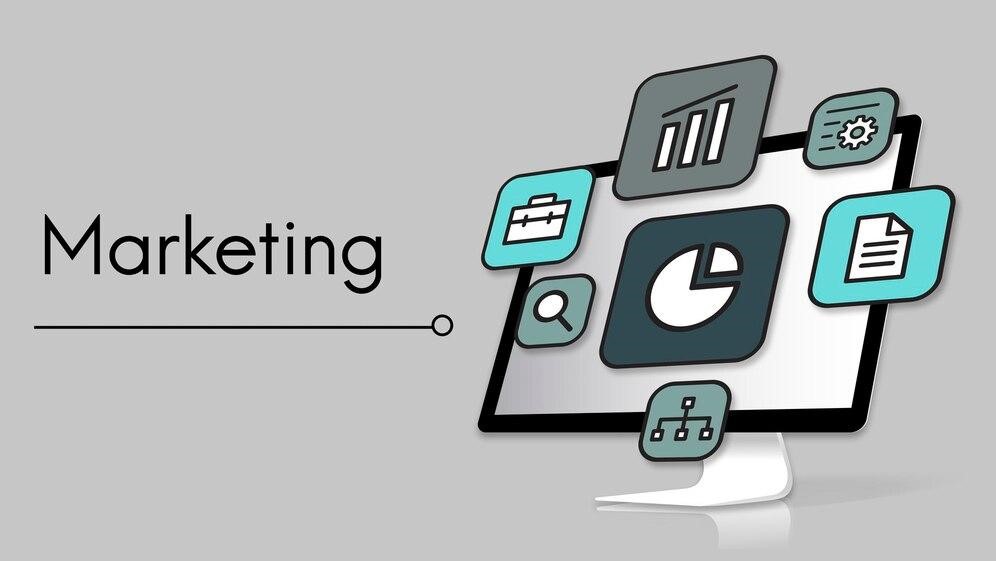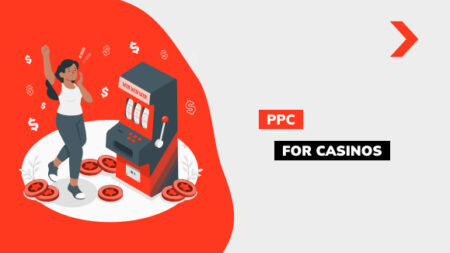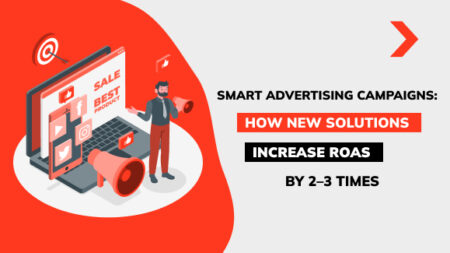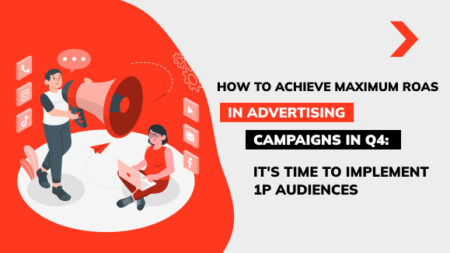PPC Campaign Management
PPC is one of the essential services in our digital marketing, and through careful management, PPC can yield consistent search results. Proper PPC campaign efficiency enhancement allows you to target the correct target audience, provides a high engagement scale, and hopefully increases your overall profitability.

What is PPC Campaign Management?
PPC campaign efficiency enhancement (or pay-per-click) is the one that directs and changes the advertisement function of a company to satisfy specific objectives within marketing.
This involves such tasks as researching keywords, creating ads, fine-tuning management, and monitoring through performance statistics ‘thus attaining a maximum return on investment (ROI)’ from whatever advertising budget the company may have at its disposal. All of these elements work together to create effective campaigns, but they can also be addressed individually, depending on the specific needs and goals of the company.
Key Elements of PPC Campaign Management
Keyword analysis: Identifying and choosing the most relevant, effective keywords that potential customers will use when looking for products or services related to your company. This will entail looking at search volumes, competition, and the cost per click (CPC) of many different keywords in great detail.
Ad copywriting: Writing catchy and targeted ad copies that simply cannot help but draw clicks from your target market. This means you are writing persuasive headlines and descriptions that capture readers’ interest repeatedly [writing powerfully while using phrases makes completion possible].
Setting and adjusting bid amounts so keywords display optimistically on search engine results pages, especially while keeping within budget requirements. This requires regular checking to balance cost & performance. Landing Page Design: Creating or making ‘Target Pages’ personally relevant to visitors from the ad destination where they arrive, hoping that a satisfactory user experience will lead them through their completion. All so, this program’s overall success level will probably also go up.
Performance and Analytics: Monitoring key metrics such as click-through rates and conversion ratios, costs per conversion, and overall campaign profitability. Use analytics tools to obtain insight into how a campaign is doing & where improvements can be made.
Continuous Testing: Regularly test various ways a customer enters the site, then periodically polish the campaign based on what’s been learned. This includes A/B testing different ad variations, adjusting bids, updating keywords, and making changes to increase the advertisements’ relevance or effectiveness.
Creating a Strong PPC Strategy
Businesses need a robust, tailored strategy to drive website traffic. This involves developing a comprehensive action plan for pay-per-click (PPC) advertising. Experts leverage ad groups, relevant web technologies, tools like search queries, and innovative trends to ensure the strategy delivers results. The ultimate goal is for the business’s website to achieve optimal rankings, traffic, indexing, conversions, and other growth metrics.
How to Plan and Execute a PPC Strategy
For a successful PPC strategy, businesses must define their goals (e.g., a desired number of clicks, leads, or ROI percentage). The strategy should include audience research, analysis of individual search terms, budget planning and allocation across campaigns, platform and ad selection, and ongoing modernization. Continuous monitoring is the key to success.
Optimizing Campaigns for Google Ads Success
Success in Google Ads begins with modernization. Experts focus on selecting precise keywords, implementing effective bidding strategies, and conducting regular performance analysis. These efforts improve CTR, reduce CPC, and attract more customers — every detail matters, so modernization should be the starting point.
Using Click Data to Improve PPC Performance
Click data is the cornerstone of success in PPC. Specialists analyze CTR, conversions, and user behavior to refine strategies. They identify top-performing ads, adjust bids, and target audiences more effectively. Leveraging this data enhances ROI, driving even greater performance metrics.
Benefits of PPC Campaign Management
For businesses that want to squeeze every last drop from their online advertising, effective PPC (Pay-Per-Click) campaign management can produce plenty of advantages. Here’s what businesses can look forward to:
Greater Returns on Investment (ROI)
But with effective PPC campaign efficiency enhancement, you can make your company get a bigger bang for its advertising buck. By targeting specific keywords and demographics, companies can draw leads that are more likely to turn into paying customers. Through productive PPC management, every dollar spent on ads is allocated in ways that are more conducive to conversions and high values. By adding data-driven insights, marketing managers refine their campaigns continually, bringing back the highest possible return on your ad spend.
Improved Campaign Performance and Efficiency
An exclusive PPC campaign management will be able to optimize ads for performance. This means conducting A/B tests on ad copies, adjusting bids and frequencies, and refining targeting options to reach your desired audience. A better campaign means higher click-through (CTR) and conversion rates, making your advertising more efficient. Through continuous monitoring and adjustments, you can ensure that the campaign remains optimal while your ads stay effective over time.
Access to Specialized Skills and Expertise
Hiring a pay-per-click campaign manager gives you these specialized skills and expertise. These professionals follow the most recent trends and best practices in PPC advertising. They know how to work with different PPC platforms, e.g., Google Ads and Bing Ads, meaning that campaigns are executed precisely and efficiently. Such expertise can be particularly useful for navigating the complex aspects of PPC, such as keyword bidding strategies, ad rank improvements, and mixing advanced targeting options.
Time Savings for Businesses
Managing PPC advertising can take a lot of time and demand constant attention. If you outsource this work to a PPC manager, the time and resources saved can be better used to focus on what counts in a business or organization. That is, the business strategies your managers are using and how they reflect on your future.

The Role of PPC Managers
PPC managers have a significant role in a successful, effective online advertising campaign. They are responsible for planning, executing, and optimizing PPC campaigns, helping them meet business objectives most efficiently and effectively. Therefore, it will cover the main responsibilities and various skills that pay-per-click managers have to have to do a good job.
Skills and Qualifications
Knowledge of PPC Platforms (Google Ads, etc.)
A PPC manager must thoroughly understand Google Ads, Bing Ads, and other PPC platforms. This expertise is necessary to set up and manage Pay-per-click campaigns effectively. The nuances of each platform offer unique features that savvy managers can use to their benefit. This is why it makes sense for them to know the different ad products and bidding strategies on these various sites better than anyone else.
Data Analysis and Interpretation Skills
PPC managers need to be strong in data analysis. They have to turn performance data and efficiency into practice while optimizing PPC publicity. They need to be reporting software such as Google Analytics so that they know where a campaign performs well.
Copywriting and Ad Creation Expertise
PPC management ought to have a strong copywriting capability: the ability to bring in clicks and conversions. They should be able to write compelling copy to prove that their ads attract attention. This involves being proficient in drafting attention-grabbing headlines as well as interesting write-ups. Also included here are those(CTAs) that work. In addition, they must be familiar with what types of visuals best compliment an advertisement: visual creativity is central at all stages, from making sketches to producing final drafts of any printed material. When doing its design, you should make sure that creatives appear sound with all brand communication and current project objectives.
PPC Management for Agencies vs. In-House Teams
Businesses must decide whether or not to pay an external PPC agency or create their own team when managing PPC (pay-per-click) campaigns. Each has its own set of benefits, but it also carries certain risks. Studying these in advance can make it possible for businesses to make a more informed decision about the correct solution in light of their particular needs and goals.
Advantages of Agencies
- An Expert Team
Agencies supply PPC experts from a wide variety of disciplines and countries. This collective expertise involves different industries, platforms, and advanced techniques, which help develop campaigns and manage them to maximize effect.
- Advanced Tools and Technology
Agencies frequently possess the latest, top-of-the-line tools and technologies, for instance, those used in research on keywords or bids, tracking how well individual places perform. Such instruments provide more in-depth detail and greater manageability. In turn, campaign performance is enhanced as long as they can.
- Integrated Strategy Offerings
Through the holistic approach that agencies offer, PPC can be integrated with other marketing strategies such as SEO (search engine optimization), content PPC marketing, and social media advertising. This all-inclusive strategy ensures that the marketing efforts echo one another and align with the aims of an entire company.
- Flexible and Scalable
Agencies can size up as needed by just about any account or shrink back in quieter times. This capability is desirable for busy businesses.
Advantages of In-House Teams
- Comprehensive Understanding of Business
In-house teams have a profound understanding of the company’s products, services, and target clients. This deep knowledge means campaigns are more personalized and closely aligned with the intended audience.
- Immediate and Direct Communications
Having an in-house team enables swifter and more direct communication. This, in turn, leads to faster decisions, direct implementation of adjustments, and better cooperation between marketing, sales, or other departments.
- Totally Controlled Campaigns
An in-house team provides absolute control over PPC publicity. Companies can directly supervise all aspects of the campaign process, from PPC strategy to execution, when they have their unit in-house and ensure that everything is accurately geared to corporate goals and brand image.
- Cost-effective Over Time
While forming an in-house team may be expensive initially, it will produce lower costs over time. Once staff and procedures are optimized, ongoing expenses are less than those for continuous agency services.

Essential Aspects of PPC Campaign Management
Outstanding PPC (Pay-Per-Click) campaign management includes several key components. These components ensure that campaigns are tightly knit and excellently targeted, focusing on delivering results only. Here are the key components of PPC campaign management:
Campaign Setup and Optimization
- Keyword Research and SelectionIn.
To run a successful PPC campaign, you must first master keyword analysis. In this way, you can get a rough idea of the most relevant and cost-effective key terms that leads are entering when they search for company products or services. Finding out about high-performing keyword combinations through online tools like Google Keyword Planner, SEMrush, and Ahrefs may help.
- Ad Copy Writing and Creative Design
If you look after ad copywriting and bring out attractive visuals, then this channel for click-through is vital. Ad copies should have strong headlines, be rich in Calls to Action (CTA), and contain relevant keywords. When displaying advertising visuals, bright coloring, a resolution of 300 dpi or better, and a look and feel that has been thought about in terms of the brand story are essential.
- Target Page Optimization
They must be optimized to give landing pages a user-friendly, seamless, and relevant experience. This includes having a clear Call-to-Action (CTA), easy navigation, and content that matches the ad copy. Landing pages that are of high quality not only increase conversion but also lower bounce rates.
Ongoing Monitoring and Analysis
- Tracking Performance
Regular and ongoing monitoring of key performance metrics is crucial. Such metrics include click-through rates (CTR), conversion rates, cost per click (CPC), and cost per acquisition (CPA).
- Data Analysis and Reporting
Analysis of performance data can help identify trends, strengths, and weaknesses in the campaign. Regular reporting from Google Analytics or PPC platform dashboards can give insights into which aspects are progressing nicely and where adjustments are needed.
Advanced Strategies for PPC Management
To remain competitive in the PPC (Pay-Per-Click) ad landscape, Where all others fall short — but is your new word. Introducing advanced strategies is crucial. These strategies are also more advanced, involving based testing of the unique needs of that campaign in various marketplaces. Here are some advanced strategies for PPC management:
Remarketing and Retargeting
Process for Remarketing Campaigns
- Re-targeting Things
People who are re-targeted have already visited the site or clicked on ad campaigns, So they are already familiar with your brand. Despite this, you still need to let them feel like themselves and also agree or come around, although at a later time. By setting up remarketing lists and customized advertisements, it is possible to significantly increase the number of people who complete an action following their initial visit.
- Dynamic Re-marking
Dynamic remarketing uses personalization to take that one step further, beyond simply returning a user to the website and encouraging them again with the same marketing information over and over. In practice, dynamic remarketing can, for example, be very useful to websites. This means that customers who once showed interest in your products will stay aware of future stipulations that may arise.
A/B Testing for Ad Optimization
- Ad Copy Variants
A/B testing, or split testing, involves creating multiple ad copy versions to determine which performs better. This can include headline variations, descriptions, CTAs, and ad formats. Regularly testing and iterating on ad copies helps identify the most effective messaging.
- Target Page Testing
Testing different landing page designs and content is crucial for optimizing conversion rates. Elements to test include headlines, images, CTAs, form fields, and overall layout. Tools like Google Optimize can facilitate A/B testing of landing pages.
Shopping Ads
- Optimization of Products
For e-commerce businesses, optimal products are key to successful shopping ads. Ensure product titles, descriptions, images, and prices are accurate. Regular product updates will help maintain the quality score relevance of shopping ads.
- Bid Adjustments for Shopping Ads
Based on product performance, incorporating bidding adjustments can maximize ROI. This may involve increasing bids for high-performing products and lowering them for low-performing products. Monitoring product-level performance statistics sustains informed bid adjustments.
FAQ
What is campaign management in PPC?
When managing PPC publicity, handling the process includes everything from its beginning to its performance analysis at a predetermined time or pre-determined place. Specific tasks include keyword research, ad creation, bid management, and performance analysis. All business will be adjusted as necessary, so any of these things must still be done once the ad’s purpose has been achieved or reached its goal criteria that you have determined for yourself. There are no longer credible alternatives, meaning there will be no adjustments.
What does a PPC campaign manager do?
A PPC campaign manager undertakes the planning and execution of PPC ad campaigns, as well as their efficiency enhancement. All that is up to them is keyword analysis, creating ad copies, bid management, and monitoring performance — to a higher or lesser degree. Then, they need to make data-driven decisions to improve profitability.
What are PPC management services?
PPC management services are professional services agencies or freelancers provide to manage the PPC campaigns. This includes developing strategy, keyword analysis, creating ads, bid management, and performance tracking. Last but not least is campaign efficiency enhancement.
How do you manage PPC campaigns?
PPC management requires several steps:
- extensive keyword analysis to arrive at suitably targeted key phrases;
- creating compelling ads that are appealing and accurate enough for prospective customers to click through them;
- designing well-targeted campaigns based on the above information;
- constant monitoring of campaigns for analysis of results.





